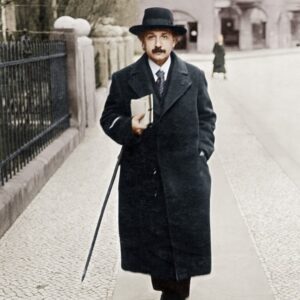Jian-Wei Pan Studies Boson Sampling to Achieve Quantum Supremacy
Quantum Computer Made from Photons Achieves a New Record
Excerpts and salient points ~
+ In the race to create a quantum computer that can outperform a classical one, a method using particles of light (photons) has taken a promising step forward. Jian-Wei Pan and Chao-Yang Lu, both at the University of Science and Technology of China, and their colleagues improved a quantum computing technique called boson sampling to achieve a record 14 detected photons in its final results. Previous experiments were capped at only five detected photons.
+ The increase in the number of the particles is small, but it amounts to a 6.5-billion-fold gain in “state space,” or the number of ways in which a computer system can be configured. The larger the state space, the less likely a classical computer can perform the same calculation.
Pan and Lu argue in their paper that their technique is another possible route toward quantum supremacy. “I’m not sure—it looks hard,” says Scott Aaronson, a theoretical computer scientist at the University of Texas at Austin, who was not involved with this research. “But, you know, as a co-inventor of boson sampling, I’m gratified to see to see progress along that route as well.”
+ Boson sampling can be thought of as a quantum version of a classical device called the bean machine. In that device, balls are dropped onto rows of pegs, which they bounce off of, landing in slots at the bottom. The random motion of the balls typically leads to a normal distribution in the slots: most balls fall near the center, and fewer fall toward the sides, tapering off at the edges. Classical computers can easily simulate random motion to predict this result.
+ Boson sampling replaces the balls with photons and the pegs with optical devices such as mirrors and prisms. Photons are fired through the array and land in a “slot” at the end, where detectors register their presence. Because of photons’ quantum properties, a device with just 50 or 60 photons could produce so many different distributions that classical computers would take billions and billions of years to forecast them.
+ Whether or not boson sampling can scale up to reach quantum computational supremacy remains unclear. Many questionable claims have come before—some with multimillion-dollar businesses based around them.
+ “Quantum supremacy is like a horse race where you don’t know how fast your horse is, you don’t know how fast anybody else’s horse is, and some of the horses are goats,” Dowling says. But this result, he clarifies, is not a goat.
Source: SCIENTIFIC AMERICAN. Daniel Garisto, Quantum Computer Made from Photons Achieves a New Record…
Content may have been edited for style and clarity.

